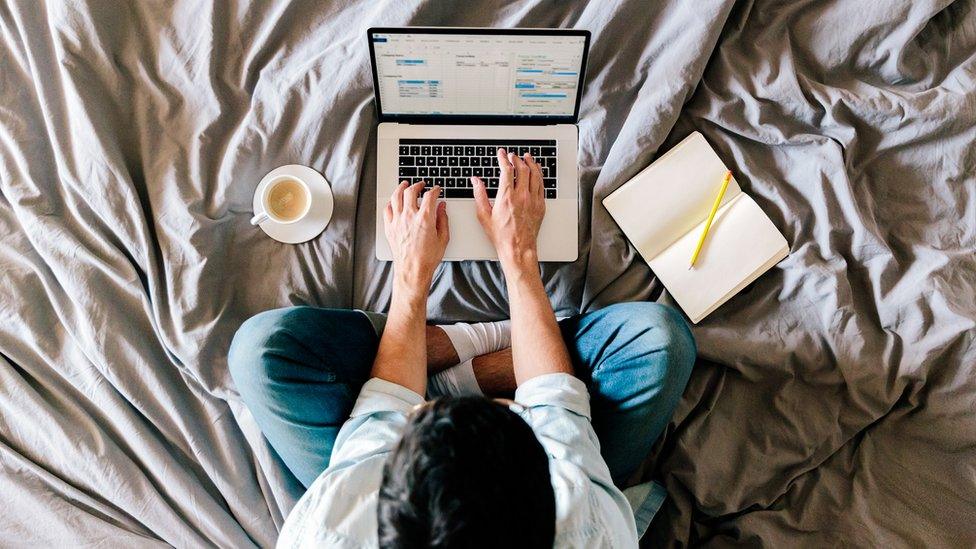'Pubs may run out of cash as more work from home'
- Published
- comments
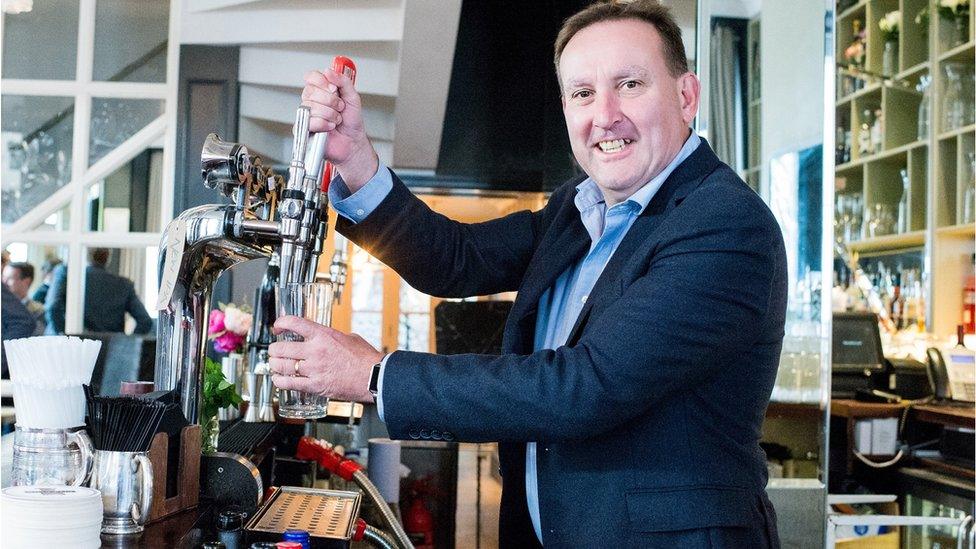
Clive Watson says office parties are now being cancelled
Hospitality firms have warned they face a collapse in demand at their busiest time of year due to the government's new work-from-home guidance.
The measures, designed to slow the spread of the highly transmissible Omicron variant, come in from Monday.
One trade body called them a "body blow" to already-struggling pubs, restaurants and entertainment venues.
Pub chain boss Clive Watson said some pubs could "run out of cash" without extra help from the government.
However, the government is not planning any new economic support measures.
'Christmas is key'
Mr Watson said the City Pub Company, which has 44 sites in England and Wales, was just starting to get back on its feet after a rough 18 months.
But he said the government was "turning off the life support machine yet again" by bringing back home-working.
"From about 10 days ago office parties started to get cancelled [because of Omicron]. Going forward after yesterday's announcement that is only going to accelerate," he told the BBC's Today programme.
"What government has got to appreciate is for businesses, particularly in our sector, Christmas is always a key time."
The City Pub Company makes about a third of its annual profits in December, which tides it over in the quiet months of January and February.
Hospitality firms fear losing vital passing trade as more people work from home. Businesses from dry cleaners to coffee houses depend on an office crowd, particularly in city centres.
By contrast, those that cater to people in their homes, such as takeaways and supermarkets stand to gain from the new guidance.
We talked to firms that rely on commuters about how the new home-working guidance will affect them.
'It feels like reverse gear'

Passing trade is incredibly important, says restaurant owner David Abrahamovitch
David Abrahamovitch runs Grind, a chain of nine café restaurants in London, employing 250 staff. He also has a successful online store selling compostable coffee pods for Nespresso machines, and says he can "fall back" on that side of the business if things get tough.
"A lot of other hospitality businesses won't have that, so we're lucky," he told the BBC. "But it will still be painful to watch the company go into reverse gear again."
Grind relies on people coming into central London and has also has seen a big drop-off in Christmas party bookings since Omicron emerged, which Mr Abrahamovitch thinks will get worse.
He is nervous about how the landlords he rents his shops from will react if things really slow down.
"They have already given a lot [of leeway in the pandemic], and everyone has their limits. They have businesses to run too."
'I've thought about throwing in the towel'
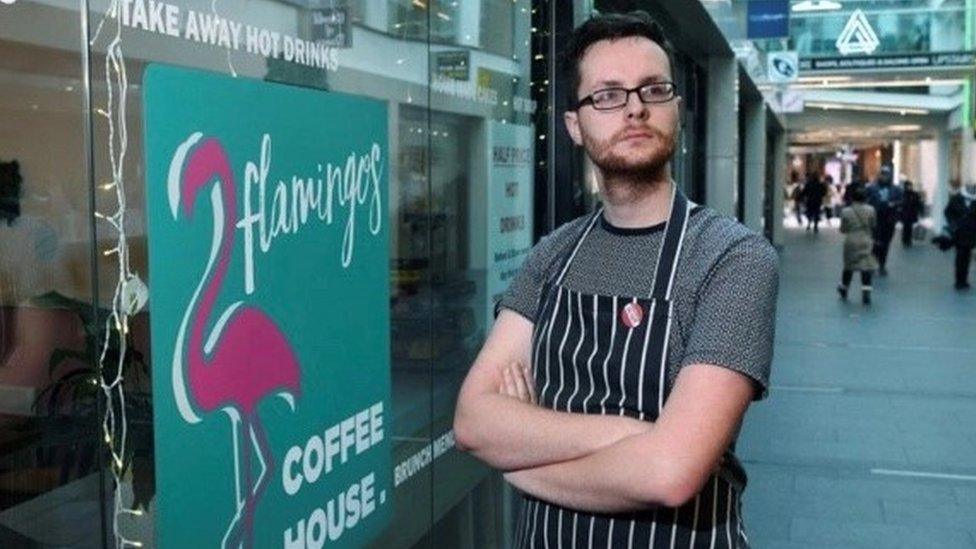
James Greenhalgh says the uncertainty makes it impossible to plan ahead
It's a similar story for James Greenhalgh, owner of the Flamingos Coffee House in Leeds city centre, who says about 50% his trade comes from the local office crowd.
"We've had such a hard time in the pandemic and things were just starting to pick up again. It's just so hard. I've genuinely thought about throwing in the towel."
His thinks the government's approach will stifle business growth. He was just about to agree a lease on bigger second shop but has now put that plan on ice.
"The rules seem to change every week, which makes it impossible for businesses to plan ahead," he said.
"The government should have been clear with business owners what might happen if a new variant came along. They should have told us about the contingency plans."
A study from the University of Sheffield suggests city centres stand to lose £3bn in 2022 due to more people working from home.
Dr Jesse Matheson, lead author of the paper, said: "This decrease will be concentrated in a few very dense centres; for example, the City of London will experience a spending decrease of 31.6%, and central Birmingham will experience a decrease of 8%.
"Some of this spending will be realised in the residential areas where these workers live, but some may be lost altogether."
'More uncertainty is never welcome'
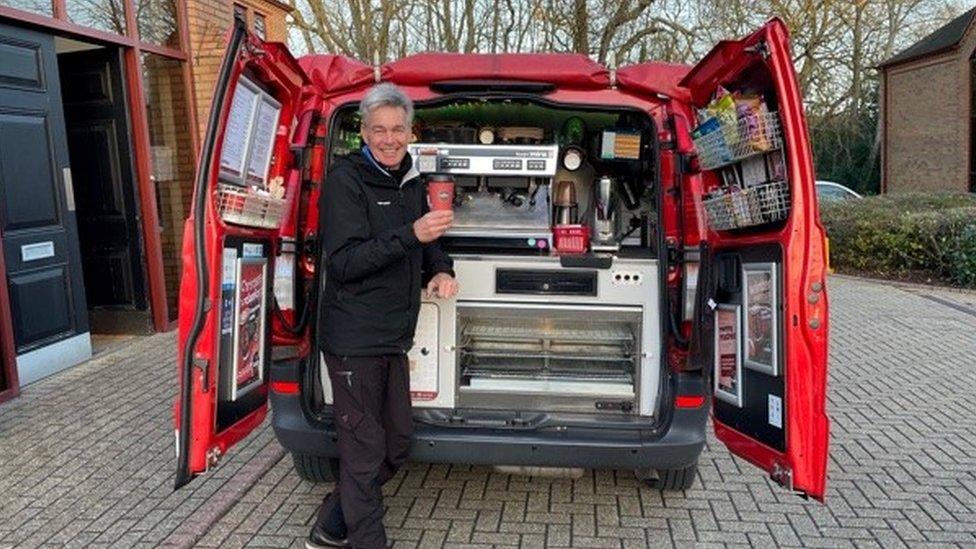
Rich Bool was already noticing more staff working from home, even before the latest restrictions. He runs a mobile café, making up to 30 trips a day to offices and industrial estates.
"It can be so difficult trying to work out from one week to the next what stocks and sandwiches you need," he told the BBC. "There are just so many variables. More uncertainty is never welcome."
He has, however, learned a lot from previous lockdowns and mass home-working. Having a van means his Chippenham-based Cafe2U service can be nimble, going to where the best custom might be.
Mr Bool now even visits some customers at their homes.
"We've built up a trusted relationship with some of our customers when we went to their offices. Now we take our food and drink to a few of them at home," he said.
"Obviously it's easy to make your own sandwich. But when you're working from home all the time, sometimes it's good to buy something if it's on your doorstep."
- Published8 December 2021
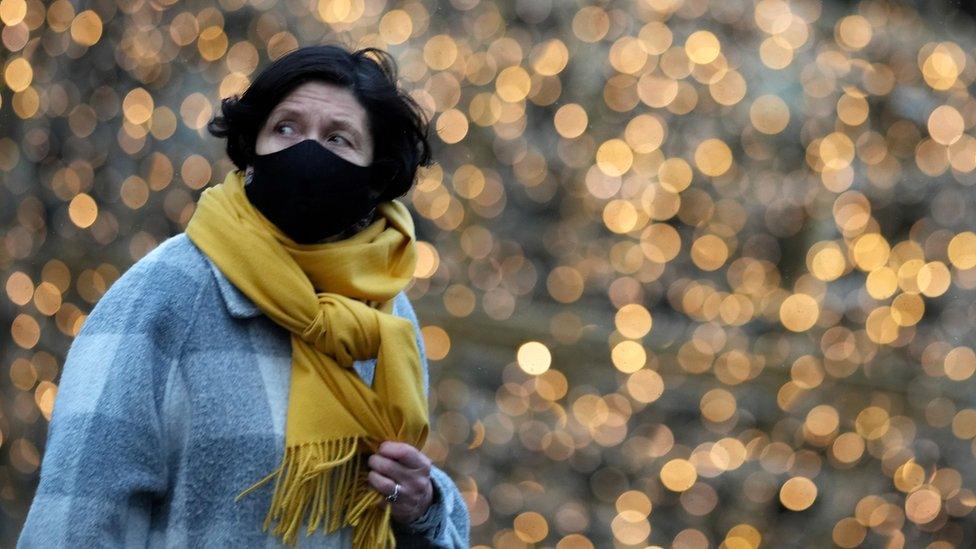
- Published9 December 2021
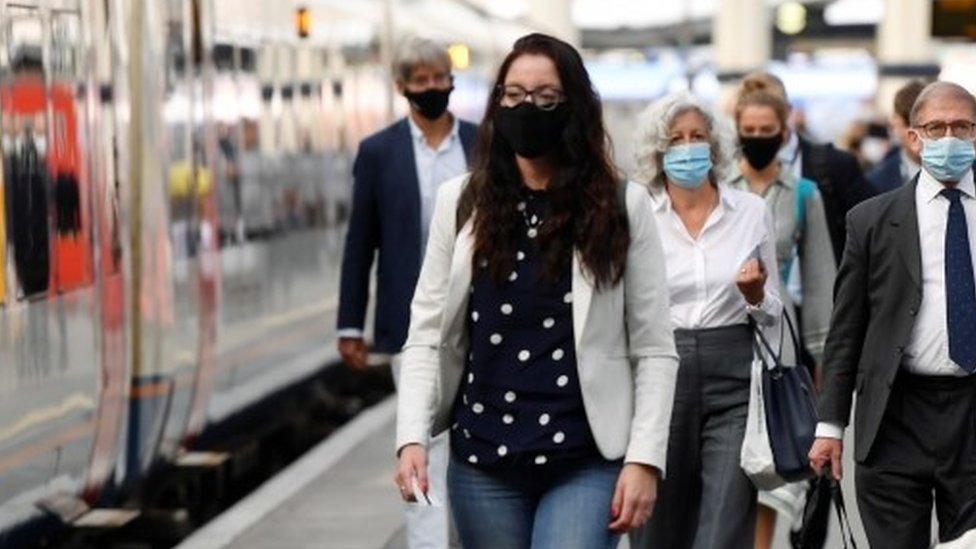
- Published31 January 2022
